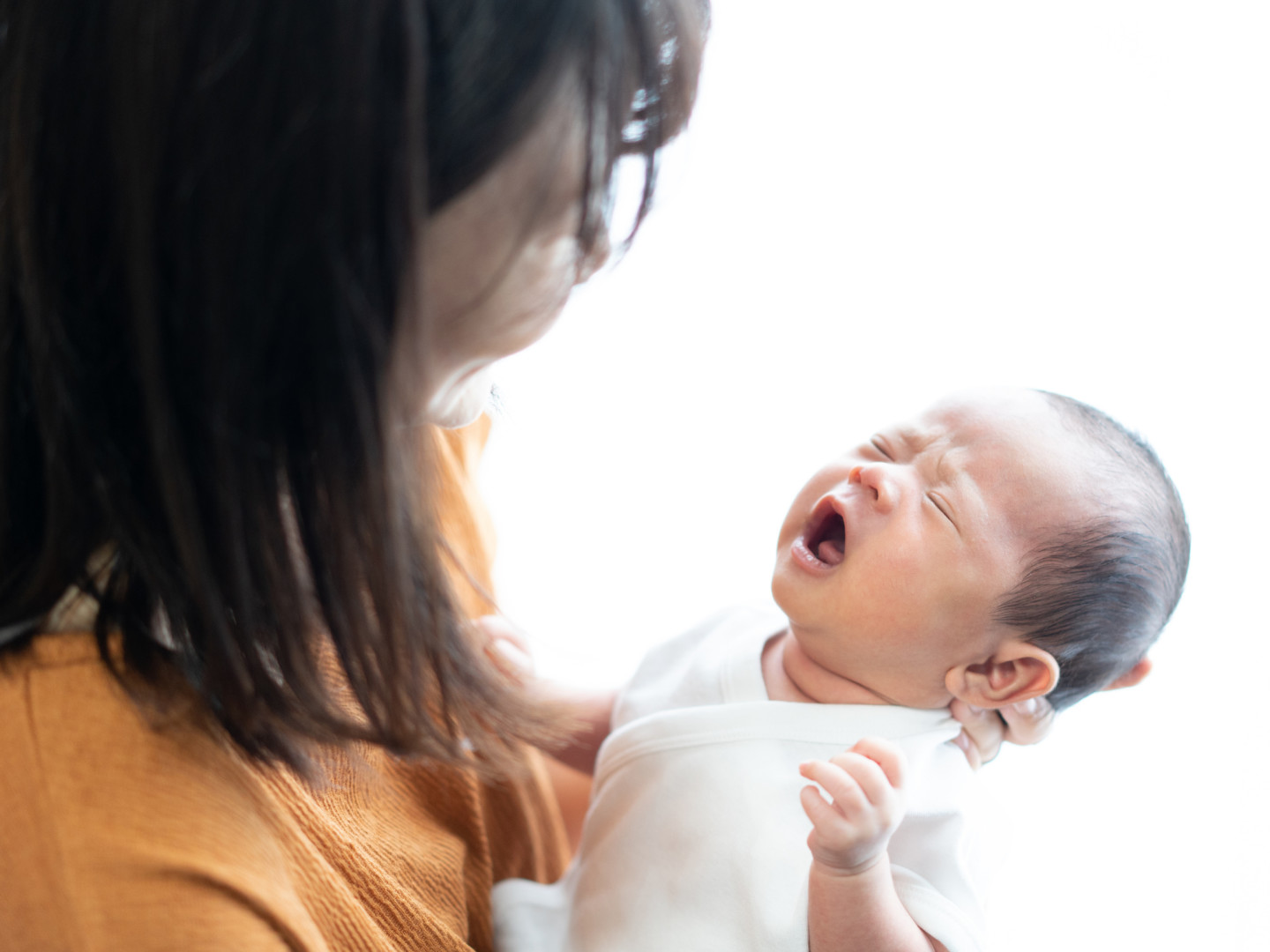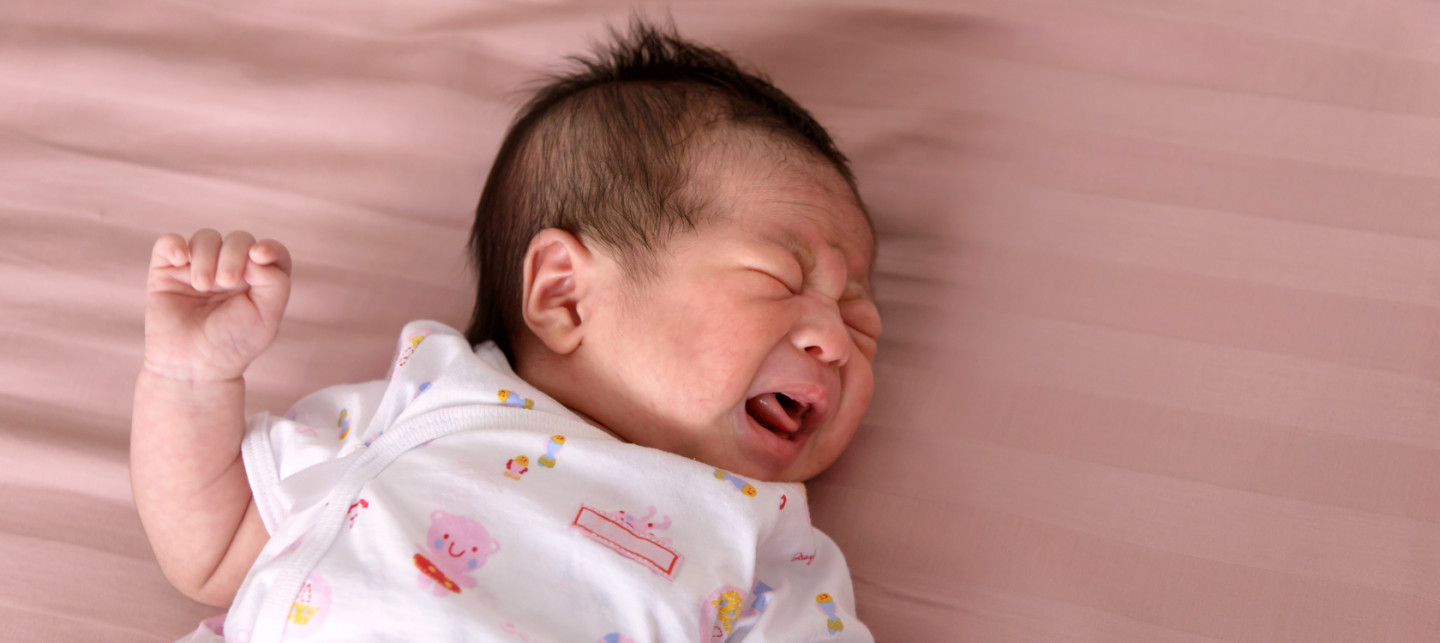Why 11 Month Old Baby Crying Continues
Have you ever checked on your baby to see why they're crying and found them still — somehow — asleep? If so, you're not alone in feeling confused about why babies sometimes cry in their sleep. Just another mystery about the littlest humans, parents are often unsure how to respond when their baby is sleeping with their eyes closed yet crying out.
Seeing their babies crying in their sleep can be alarming for many parents and leads to questions about babies having nightmares or being hungry, as well as how to help their crying baby return to a peaceful, deep sleep. Understanding the most common reasons babies cry while still asleep will help you know what to do the next time your little one begins screaming or crying in their sleep.
IN THIS ARTICLE:
-
Why do babies cry in their sleep?
-
The 3 most common reasons why babies cry in their sleep
-
Can babies have nightmares?
-
Is a baby crying in their sleep something to worry about?
-
How to help a crying baby fall asleep

Why do babies cry in their sleep?
Although it's not common for babies to cry in their sleep, it does happen. Some parents turn on the monitor when they hear crying, only to be surprised to see their baby's eyes are closed. Other parents may go to check on their baby, only to have the crying suddenly stop and find their baby fast asleep. This behavior may have you scratching your head or wondering if something is wrong. Understanding the reasons babies cry in their sleep can help you know what to look for and how to help your baby.
The 3 most common reasons why babies cry in their sleep
-
Crying while transitioning from one sleep cycle to the next
Like adults, babies sleep in cycles. But unlike adults, babies transition between sleep cycles very rapidly, spending more time in REM sleep (also referred to as active sleep) than deep sleep. During this stage, you may notice your baby's eyes moving a lot under their eyelids (this is where the term "rapid eye movement," or REM, comes from). Babies can even be seen moving their arms and legs, closing and opening their hands, twitching or jerking, or yes, even crying during REM sleep.
With sleep cycles lasting just 40 minutes on average, many babies will experience a brief awakening at the end of each one. During this brief awakening, babies may cry for a few minutes and put themselves back to sleep or may not even fully awaken.
-
Crying due to overtiredness
When babies don't get enough sleep or are awake longer than they can comfortably manage, they can quickly become overtired. Overtiredness triggers fatigue-fighting hormones, which can make it even more challenging for babies to fall and stay asleep. It seems counter-intuitive, and it can be a struggle. Overtiredness and big tears just before falling to sleep are the most common reasons your baby may be crying in their sleep.
-
Crying due to teething pain
When teeth buds begin emerging, babies may be very uncomfortable — and they'll let you know it. Teething babies are noticeably fussier and will often whine due to the discomfort both day and night. If you suspect your baby may be working on a new tooth, you might notice more frequent mild crying or whimpering while sleeping. Ask your child's pediatrician what they recommend for discomfort associated with teething.
Unless you're concerned for their safety, it's a good idea to wait and watch before intervening when your baby is crying in their sleep. When you respond too quickly, you may inadvertently wake your child all the way up or prevent them from falling back to sleep on their own.
Brief episodes of crying during sleep are developmentally appropriate and don't necessarily require help. So, the next time you discover your baby is crying with eyes closed, take a little step back and wait to see what happens next. Your baby may surprise you, and stop crying all on their own!
Can babies have nightmares?
Most of us have watched our babies sleeping and wondered, "What are they dreaming about?" In reality, those sweet smiles you might catch your baby giving in their sleep are involuntary and not in response to a dream (but we can still imagine, right?). Dreaming begins later in life, typically around age 2. The good news? Babies don't experience bad dreams, nightmares, or night terrors, and crying in their sleep is likely linked to the reasons listed above.
Is a baby crying in their sleep something to worry about?

Occasional crying during sleep isn't usually a cause for alarm. Even still, most parents want to do everything they can to ensure their baby sleeps peacefully. After all, if your baby is frequently screaming or crying in their sleep, they may be able to sleep through it — but you may not.
Newborns
Thanks to their still-developing nervous system and frequent need to eat, newborns wake more frequently than older babies, and this includes more sleep disturbances like crying without being fully awake. Newborns are also less likely to have the skills to settle themselves to sleep (and back to sleep) without help.
If your baby wakes up crying or is randomly crying while sleeping, and you know they're not hungry or needing a diaper change, there may be other solutions before becoming too concerned.
Ensuring it isn't too hot or cold during sleep times can help your baby sleep more comfortably. Experts recommend setting the temperature between 68℉ and 72℉, and caution against dressing babies in heavy layers.
Usually, whatever you're wearing plus one layer is sufficient (e.g., a long-sleeved sleeper and sleep sack). If your newborn is crying in their sleep, do a quick check of their sleep environment and see if this helps settle them.
Infants
After the newborn period, babies go through a lot of developmental changes, including changes to how they sleep; we're guessing you've heard of the 4 month sleep regression or the equally dreadful 8 month sleep regression. Many parents decide to begin working on more independent sleep once their baby is past the newborn stage and closer to 6 months.
Babies who are just learning to sleep on their own may struggle more with transitioning between sleep cycles and self-soothing, meaning it's worth giving your baby a few minutes to see if they'll settle on their own if you hear them crying in their sleep.
We know it's hard to wait when you hear your baby fussing in their sleep, but whining and whimpering during sleep is quite common, and many babies will fall back to sleep in minutes if given an opportunity — letting you do the same.
Toddlers
There's a less talked about sleep regression that can occur around a child's first birthday (and you thought you were in the clear…). The 12 month sleep regression can spell trouble with naps and nighttime. Toddlers are also known for testing limits and resisting naps — a difficult combination. Any sleep loss caused by early morning rising, missed or short naps, and later bedtimes can lead to overtiredness.
If your 1 year old is crying uncontrollably at night, you're not alone! Overtired toddlers will cry more before falling asleep and may cry briefly between sleep cycles. Often, if toddlers are given a lovey or stuffed animal to sleep with, they'll quickly seek comfort in the lovey and settle on their own without fully waking up, putting an end to crying in their sleep.
How to help a crying baby to sleep
Here are a few tips to help your baby stop crying and settle down enough to fall asleep.
Tip #1: Condense your usual bedtime routine.
If you sense your baby is overtired, it's best to condense your usual bedtime routine and help your baby begin to settle to sleep quickly. A baby that's melting down during the bedtime routine often just needs to sleep. Sometimes they're crying simply because they're exhausted! If your baby seems very tired, it is OK to skip some steps of your usual bedtime routine or speed up the routine.
Bedtime routines for newborns should be brief (approximately 10 minutes) and include just a few activities such as changing the baby's diaper, applying lotion or a soothing massage, swaddling or changing into pajamas, and rocking for a few minutes until drowsy.
Bedtime routines for older babies are usually slightly longer (approximately 15 - 30 minutes) and may include additional activities such as reading 1 - 2 books or singing lullaby songs.
Tip #2: Lay on the soothing
When a baby is very upset, it is helpful to spend some extra time soothing them. You can try turning on white noise and begin shushing or singing to your baby. Many babies also settle down faster and will stop crying when rocked or bounced gently. If your baby takes a pacifier, you can also use it to help your baby stop crying.
If you are breastfeeding, you may find bringing your baby to the breast to comfort nurse for a bit puts an end to crying, even if they are not hungry. Nursing is very soothing for babies, and the closeness to mom will bring down their heart rate and prepare them for sleep.
Tip #3: Be patient
Calming a crying baby may take some time, and they may take longer than usual to fall asleep: Be patient. If there is more than one caregiver, consider taking turns with the baby. Once the crying has stopped, now's the time to attempt putting your baby to sleep.
Source: https://huckleberrycare.com/blog/reasons-why-your-baby-is-crying-in-their-sleep-causes-and-tips
0 Response to "Why 11 Month Old Baby Crying Continues"
Post a Comment